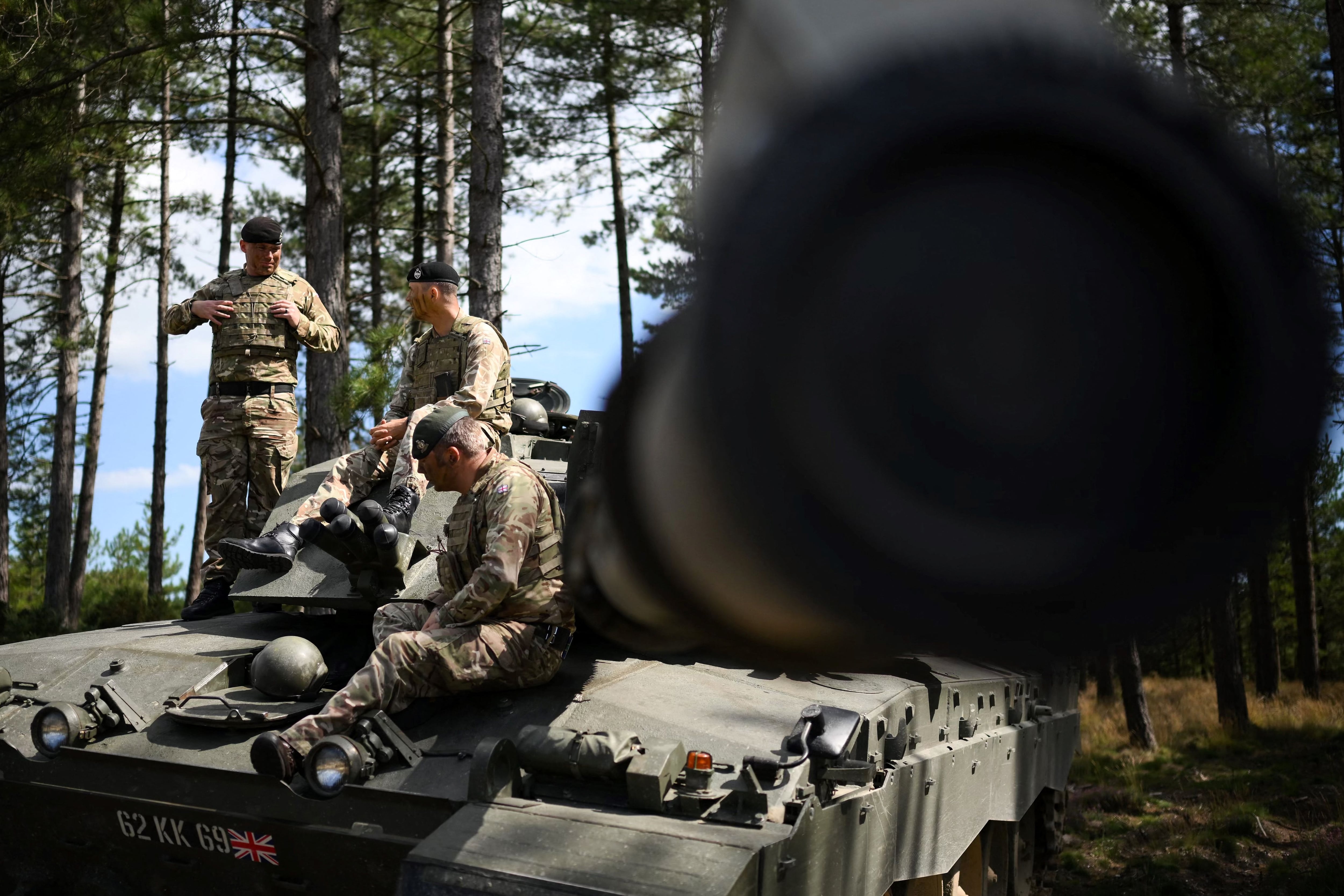COLOGNE, Germany — The defense ministers of Germany and the U.K. plan to sign a new defense agreement on Wednesday that will see the two countries develop new long-range strike weapons, prioritize securing NATO’s eastern flank and field a new class of drones for accompanying their battle tank formations, according to separate statements from the two governments.
Called the Trinity House Agreement, the pact amounts to a comprehensive reboot of defense relations between London and Berlin that had lacked structure since Britain formally exited the European Union in early 2020.
The jam-packed agenda touches all military domains – air, land, sea, and cyber – showcasing Rheinmetall as a linchpin of industrial cooperation for land forces, and MBDA, with its Storm Shadow cruise missile, as the nucleus for a future, joint long-range strike weapon.
Stationing long-range missiles in Europe, including from the United States, has become a key pillar in NATO plans to deter Russian aggression against the continent.
Under the new plan, German defense contractor Rheinmetall and its British subsidiary will open a factory for making artillery gun barrels using locally made steel, re-establishing a capability given up by the British a decade a ago, according to the U.K. Ministry of Defence statement. The first barrels are slated to roll off the production line in 2027.
RELATED

British and German troops, with their growing presence in eastern Europe aimed at securing NATO’s eastern flank, are slated to intensify their joint training, using their forward position as a “catalyst for developing new ways of fighting,” the British statement reads.
In the maritime domain, the two nations pledge to cooperate on new technology for monitoring vital undersea cables and pipelines in the North Sea, a key concern for defense planners in Europe amid Russian espionage against such targets.
“The UK and Germany are moving closer together,” German Defense Minister Boris Pistorius was quoted as saying in a statement circulated to reporters on the eve of the Trinity House Agreement’s signing.
“With projects across the air, land, sea, and cyber domains, we will jointly increase our defense capabilities, thereby strengthening the European pillar within NATO,” he added. “We can only strengthen our ability to act together. This is why our cooperation projects are open to other partners.”
The British statement characterized the new defense pact with Germany as an example of the new Labour government of Prime Minister Keir Starmer “resetting” relations with European allies.
An impending, overarching cooperation agreement with Germany beyond military matters is meant to complete a trio of separate bilateral pacts linking Britain and France, France and Germany, and Britain and Germany.
“The Trinity House Agreement is a milestone moment in our relationship with Germany and a major strengthening of Europe’s security,” British Defense Minister John Healey was quoted as saying.
As for support to Ukraine, an immediate step under the new pact will be outfitting donated German Sea King helicopters with “modern missile systems,” the British statement reads. In addition, the U.K. will play a bigger role in a Polish- and German-led armor support coalition for Kyiv, while Germany will do the same in a British-Latvian-led group devoted to drones.
Sebastian Sprenger is associate editor for Europe at Defense News, reporting on the state of the defense market in the region, and on U.S.-Europe cooperation and multi-national investments in defense and global security. Previously he served as managing editor for Defense News. He is based in Cologne, Germany.






